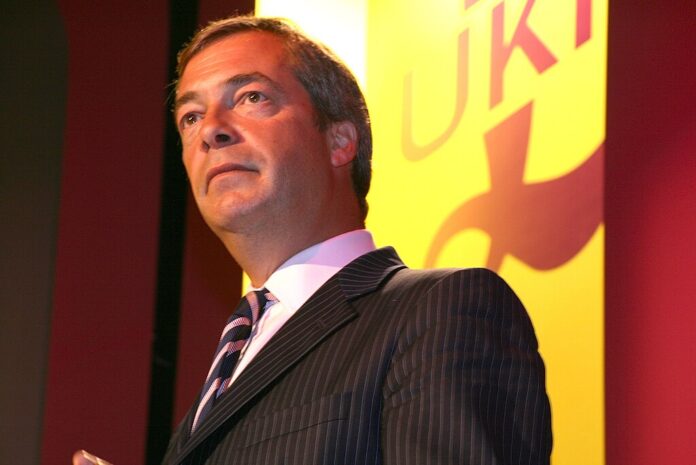The reform UK leader reveals he was targeted just a day before the general election, highlighting the dangers political figures face today
In a surprising revelation, Nigel Farage, the leader of Reform UK, disclosed that he was recently the target of an attack where someone threw a pint of beer at him. This incident occurred just one day before the General Election, as Farage intensified his campaign efforts. Speaking on a news platform, Farage recounted the event while discussing the broader context of political violence, particularly in light of a recent assassination attempt on Donald Trump.
Farage, 60, recounted, “The last time someone threw a drink at me was last Wednesday. I generally don’t publicise it when these things happen.” He pointed out that he typically refrains from sharing such experiences, but felt compelled to mention the incident in the current heated atmosphere. He humorously noted that while he usually presses charges, he often finds the attacks somewhat amusing.
Embed from Getty ImagesThis incident adds to a troubling trend of violence and hostility surrounding political figures. Farage criticized media narratives, particularly from outlets like the BBC, suggesting they contribute to a climate where aggression against right-wing individuals becomes normalized. He recalled a previous event in 2019 when a protestor threw a milkshake at him, which a comedian commented on by suggesting more extreme actions.
The atmosphere turned even more serious with the recent attack on Trump during a campaign rally in Pennsylvania, where the former president was shot at, leading to chaos and injuries among attendees. Farage pointed to the interconnectedness of these events, calling for a re-evaluation of how political discourse is framed in mainstream media.
Farage’s remarks underscore the increasing risks faced by politicians today, raising questions about the safety of public figures and the societal attitudes fueling such violence. His experiences reflect a broader concern about the state of political discourse and the potential for escalation in hostile actions against those in the political arena.
Analysis:
Political:
Farage’s attack, alongside the assassination attempt on Trump, illustrates a growing trend of political violence that poses serious questions about the safety of political figures. The normalization of hostility against right-wing politicians signals a troubling shift in political discourse. This incident may push lawmakers and authorities to re-evaluate security measures for politicians and engage in discussions about how political disagreements manifest in public settings.
Social:
The beer-throwing incident reveals deeper societal divisions. It reflects an environment where aggressive actions are seen as acceptable expressions of dissent. Farage’s criticisms of media narratives indicate a broader concern that societal attitudes are being shaped by sensationalism, contributing to a culture where violence against political figures can be overlooked or trivialized.
Racial:
While this specific incident does not directly involve racial dynamics, it highlights the broader context in which race and politics often intersect. Political violence can disproportionately affect minority communities, emphasizing the need for inclusive discussions that account for all voices in the political sphere.
Gender:
Gender dynamics play a role in the reactions and narratives surrounding political violence. The ways in which men and women are treated in political spaces can vary greatly. Female politicians often face different forms of aggression, including targeted harassment, which calls for a broader examination of how gender shapes experiences in politics.
Economic:
The economic implications of political violence are significant. Such incidents can deter investment and affect public confidence in political stability. As political figures face increased hostility, the economic landscape may shift, with businesses becoming wary of engaging in regions or countries where political violence is prevalent. This can lead to broader economic ramifications for the community and the nation.
